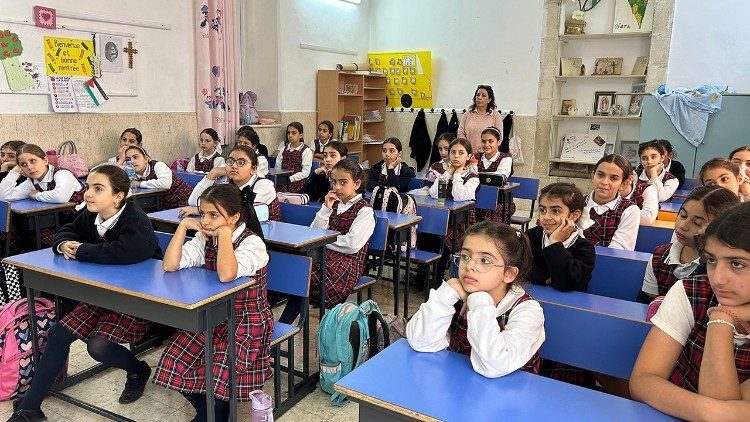For a brief moment, a group of Palestinian teachers and school leaders from Ramallah and Bethlehem find respite at a conference for Middle Eastern Christian schools in Cairo. Despite the logistical and administrative challenges of travelling to Egypt, this gathering is a welcome break from the turmoil at home.
“It feels good to be part of a network, to feel supported,” says Samia Alama, a math teacher at the Saint Joseph Sisters’ School for Girls in Bethlehem. Though exhausted, she remains mentally strong, determined to support her students through this difficult time. Beside her, Tina Hazboun, a professor at Bethlehem University, adds, “We have to keep smiling, even through the sadness.”
Access to education hindered
The war that erupted on 7 October 2023 has only worsened the already fragile state of Palestinian education, which has struggled under 56 years of Israeli military occupation. “It takes an incredible amount of patience,” explains Sister Silouane, a French nun who oversees French-language education in ten Latin schools across the Palestinian Territories.
Schools in the West Bank open and close depending on the intensity of overnight violence. “If there were clashes or incursions the night before, and depending on the number of casualties, schools may be forced to shut,” she says. Checkpoints set up overnight by Israeli forces can also prevent students from reaching class. “One day there’s school, the next there isn’t. Some days, the students are missing. Other days, it’s the teachers.”






